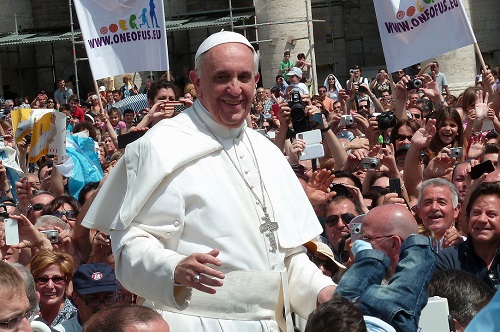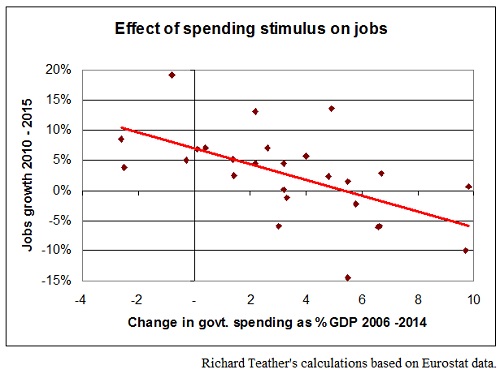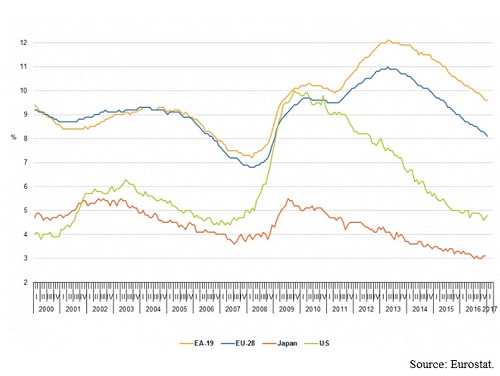
In a new essay for the Religion & Liberty Transatlantic website, Richard Teather has some surprising news about the pope:
Pope Francis has urged European political leaders to reduce government spending and lower taxes.
Well, he didn’t actually say that directly, but that is the unavoidable logic of his comments, although he might not understand enough economics to realise it.
He is referring to the pope’s address to the 60th anniversary of the Treaty of Rome, in which Pope Francis called on EU leaders to offer young people “serious prospects for education and real possibilities for entering the work force.” The pope also asked the EU27 to facilitate “the material prosperity of our peoples” through “new industrial and commercial possibilities.” Teather notes:
Across the EU, roughly 20 percent – one in five – people under the age of 25 are out of work. If that were not disgraceful enough, many countries are far worse than that average; 2016 saw more than 50 percent youth unemployment in Greece, 45 percent in Spain, more than 30 percent in Italy, almost 25 percent in France. Even Luxembourg, at the heart of the European project, saw more than 20 percent of its young people unable to find a job. And Sweden, supposedly so egalitarian and socially well-adjusted, was nearly as bad.
The function of expertise is to give direction to aspiration. Teather, a senior lecturer in tax law at England’s Bournemouth University, analyzes official EU data from Eurostat to show that employment prospects are brightest in nations that have lower taxes and spending.
The three charts may be seen here:



Teather fleshes out the full context and importance of these charts here. He concludes:
Pope Francis has, perhaps inadvertently, made the moral case for tax cuts.
He is right that European Union governments should have aim to expand opportunity for all, so that everyone has the chance to lift himself out of poverty and provide for a family. Their failure to do so, the massive unemployment and even higher youth unemployment that have blighted much of Europe, is a scandal that deserves more attention.
But what the pope may not realise is that the best way governments can do this is to get out of the way, to cut public spending, reduce taxes, and allow the economy to flourish. This is not just theory; the evidence of the last couple of decades shows clearly the lower-taxed countries in Europe are far more successful at generating the economic growth and the jobs the pope knows that people need.
Read his full article here.
(Photo credit: Edgar Jiménez. This photo has been cropped. CC BY-SA 2.0.)

